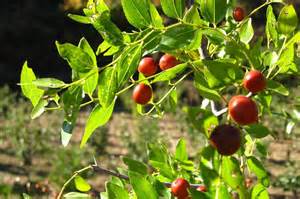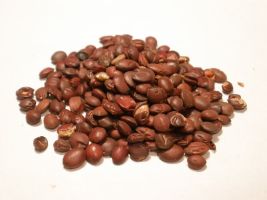[1] Barefoot Doctor's Manual- 1977 Prepared
by the Revolutionary Health Committee of Hunan Province. Original Chinese manual-
Victor W. Sidel. Originally published by Dr Joseph Quin and the Fogarty International
centre, Bethdesda (1974). Madrona Publishers Seattle Washington ISBN 0-914842-52-8
[2] A Complete English Dictionary of Medicinal Terms in Chinese Acupuncture and
Herbalism 1981 - Henry Lu Chinese Foundations of Natural Health- The Academy of
Oriental Heritage, Vancouver, Canada.
[3] Medicated Diet of Traditional Chinese Medicine - Chief Editor- Hou Jinglun.
Associate Editors- Zhao Xin, Li Weidong, Liu Jianxin, Geng Chun-e, Li Guohua,
Li Shaohua. Geijing. Science & Technology Press 1994. ISBN 7-5304-1735-5/R.
309.
[4] 间明中药学Concise Chinese Materia Medica By Eric Brand, Nigel Wiseman ISBN13-
978-0912111827
[5]
tcmwiki.com
Images
1.
innerpath.com.au
2.
photobucket.com
by
herbal
acupedia Ziziphus spinosa.
Z. sativa, Z. vulgaris 酸
枣 仁 Suān
zǎo rén Wild
jujube seed
Family: Rhamnaceae
Ziziphus spinosa.
Z. sativa, Z. vulgaris 酸
枣 仁 Suān
zǎo rén Wild
jujube seed
Family: Rhamnaceae
